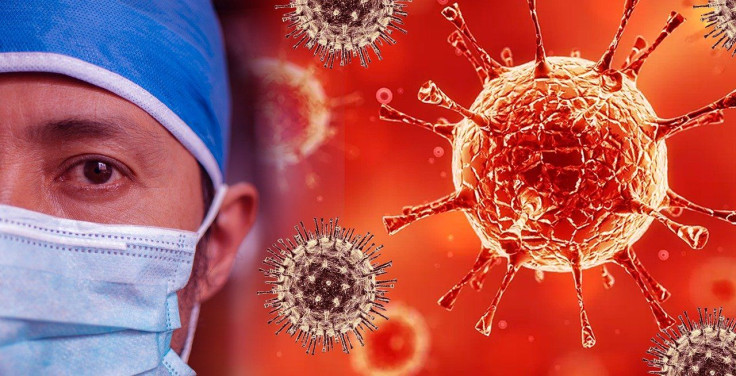Doctors Identify Blood Clots As Latest Life-Threatening Complication Of COVID-19

KEY POINTS
- Doctors are starting to see an unusually high amount of blood clots in COVID-19 patients
- Blood clots are dangerous if a piece enters and gets stuck in the pulmonary artery
- Some doctors are unsure how to treat such blood clots in COVID-19 patients
Medical practitioners are still learning about all the dreadful things that COVID-19 can cause to the human body. Reports say that in the most severe cases, doctors have seen a strangely high amount of blood clots in dangerously ill patients. While blood clots are not dangerous by itself, they can become hazardous if a piece of such blood clot breaks off and enters a pulmonary artery where it gets stuck.
More Things To Be Learned
According to reports, the confirmed cases of coronavirus infection worldwide have reached 2,408,352, of which 165,107 has already died. In the U.S., COVID-19 cases have reached 764,265, with 40,565 fatalities, many of whom are in New York. As infection cases continue to go up, doctors are also learning more things about the virus. Recently, medical practitioners have reported heart problems, kidney problems, and the presence of blood clots in serious COVID-19 cases.
At the moment, medical practitioners say they are not entirely sure how to treat these blood clots. Some doctors proposed administering heavy doses of blood-thinning drugs, while some are looking at the possibility of using clot-busting medications often given to patients who suffered from a stroke. Clinical tests are ongoing to determine whether these drug options can help patients recover; however, results of such examinations are still a couple of months away. Reports say this sometimes leads doctors to make decisions entirely on their own on how to treat the patients.
COVID-19 And Blood-Thinners
Among the doctors considering the use of blood-thinners, such as Heparin, on COVID-19 cases is Dr. Alex Spyropoulos. The question he is trying to answer is whether a therapeutic dose of blood-thinner Heparin can help save the lives of COVID-19 patients. A blood clot expert based in New York’s Northwell Health, Dr. Spyropoulos, said that this is the most important question he has so far in his field of expertise.
With the rising coronavirus cases, doctors report they are sometimes forced to figure out how to treat the illness without the availability of any vaccine or drug to cure it. For instance, reports say that doctors are not a hundred percent sure of the best method of getting oxygen into the damaged lungs of really serious cases.
More Than Just Lungs
Aside from the lungs, it now appears that COVID-19 impacts other organs and causes other complications, particularly in the most serious cases. Doctors have been observing heart problems, kidney issues, and just recently, blood clots appearing in various parts of the victim’s body. Researchers have also observed complications that might make it difficult for other COVID-19 patients to form blood clots.
Medical professionals like Dr. Spyropoulos would typically wait for results from clinical trials first to determine whether such treatments are effective. Since the virus is so new, however, clinical trials have just begun with results due in the coming months. “We're driving blindly based on what we call very weak but very compelling data,” said Dr. Spyropoulos.
Unusually High Incidence Of Blood Clotting
Even during the early stages of the coronavirus pandemic, reports say that U.S. doctors have already been hearing from their Chinese colleagues about the effects of coronavirus on the heart. This was revealed by Dr. Thomas Maddox, the Science and Quality Committee chair of the American College of Cardiology, in an interview with Business Insider. According to Dr. Maddox, the effects seem related to stress resulting from fighting the respiratory disease and a viral invasion of the heart.
Doctors have also reported seeing blood clots in the lungs and other parts of the bodies of COVID-19 patients on ventilators. This was what Dr. Greg Martin told the Business Insider in another interview. Dr. Martin is the president-elect of the Society of Critical Care Medicine and a professor of pulmonary critical care at Emory University. In its severe form, clots can damage the body, travel through veins, and blocking them in the process. It has been known to cause heart attacks, lung problems, strokes, kidney problems, and many more.
© Copyright IBTimes 2025. All rights reserved.





















